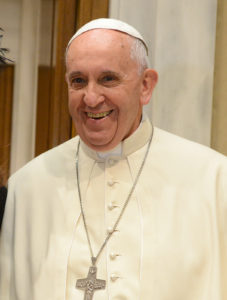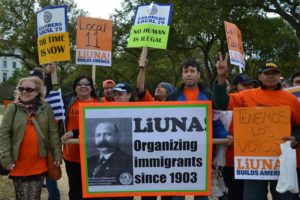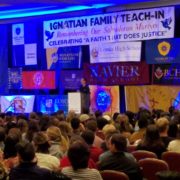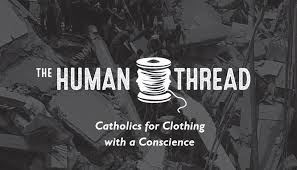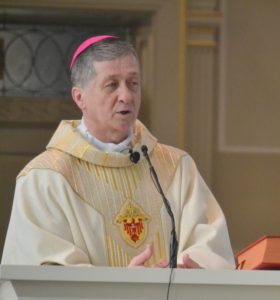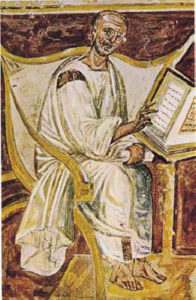The Working Catholic
by Bill Droel
Fr. Gustavo Gutierrez, OP of Peru is rightly receiving awards these days for his role in developing liberation theology. His 1973 book, A Theology of Liberation, signaled the end within Catholicism of the Western European theological monopoly. It is also now worthwhile to recall Ivan Illich (1926-2002). In early 1964 he gathered several Latin American theologians and church leaders in Brazil. It was there that the methodology and major themes of what would become libration theology took shape. Thus, Illich “played a major role in fostering liberation theology” and subsequently in its propagation, writes Todd Hartch in The Prophet of Cuernavaca (Oxford University Press, 2015).
Illich was born in Austria and was ordained to the priesthood in 1951. Later that year he was sent to Princeton University to do research. He served among Puerto Ricans in a Manhattan parish. Cardinal Francis Spellman (1889-1967) was impressed with Illich and so appointed him a rector to a university in Puerto Rico. Illich, at age 31, was made a monsignor—the youngest ever in the United States.
Today, the required reading list for a college class might include one or another book by Illich. The class will be in education, philosophy or social science. Hartch’s contribution is to put Illich squarely inside Catholicism and inside the priesthood. “He is best understood as a Catholic priest of conscious orthodoxy grappling with the crisis of Western modernity,” says Hartch. Thus, Illich’s later critiques of education, medicine and other institutions are but further examples of his prime example, the church.
The church loses its mission, said Illich, when it adopts a modern business model with its preoccupation with status, obsession with money, a fondness for measurable outcomes, a disposition to bureaucratic processes, an overuse of vacuous language and more. Illich devised an unusual way of reforming the church. He started, Hartch details, “an anti-missionary training center designed to discourage would-be missionaries” at the very moment that the Vatican and the U.S. bishops made a significant commitment to sending missionaries to Latin and South America.
Illich believed that the church’s mission effort had lost its original aspiration. Like many modern institutions, the unintended bad side effects outweighed the good intentions. Programs directed from North America to South America under the banner of development amounted to more colonialism, he said. Illich, to be clear, was not against the church and its essential missionary endeavors. Nor subsequently was he opposed to medicine, education, transportation and the like. He felt, however, that once a threshold of modern bureaucracy had taken hold, the church impedes faith, the schools hamper learning and hospitals discourage wellness.
Hundreds of missionaries attended Illich’s center in Cuernavaca because it offered the best language class, the best cultural analysis and on-and-off again the latest theological insights—all the while telling the missionaries, in effect “to go home.”
Illich, like all prophets, was contradictory. For example, here was a missionary of sorts who came from Europe to New York, then went to Puerto Rico and onto Mexico saying that imported religious education and devotions are types of disabling help. No surprise then that his anti-missionary effort had contradictory results. The number of Western European and North American missionaries to Latin America indeed dropped well below the goals set by bishops. At the same time, members of religious orders and other missionary types went back into their North American and European settings with a passion for opening the whole church to its global mission, particularly its solidarity with the poor.
As for Illich, his influence on many Catholic leaders was significant but his footing within Catholic structures was unfixed. He was for a time in regular conflict with one or another bishop and with the Vatican bureaucracy. “Many have assumed that [Illich] was forced out of the priesthood or even that he renounced Catholicism,” writes Hartch. Not true. Illich knew and believed “that priestly identity was permanent.” During 1967 to 1968 Illich gradually withdrew from active priesthood so that he would not be a source of embarrassment. His precise status defied the usual categories—not exactly a leave of absence, not at all a suspension.
Illich was a radical thinker; a person willing to experiment. He was churchman, always “trying to understand the nature of the church and its relationship to his age,” Hartch concludes.
Droel edits a free newsletter on faith and work, INITIATIVES (PO Box 291102, Chicago, IL 60629)
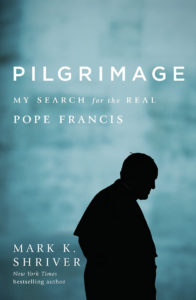 Mark Shriver, inspired by Pope Francis’ life and ministry, traveled to Argentina and retraced the footsteps of our surprising Pontiff – and writes of his journey in a new book, Pilgrimage: My Search for the Real Pope Francis. As Mark Zimmermann reports in the Catholic Standard,
Mark Shriver, inspired by Pope Francis’ life and ministry, traveled to Argentina and retraced the footsteps of our surprising Pontiff – and writes of his journey in a new book, Pilgrimage: My Search for the Real Pope Francis. As Mark Zimmermann reports in the Catholic Standard,
